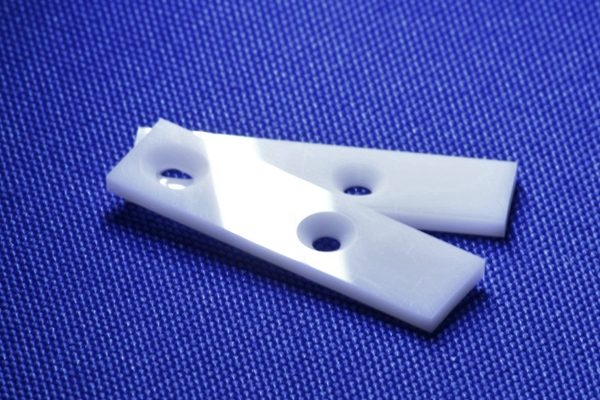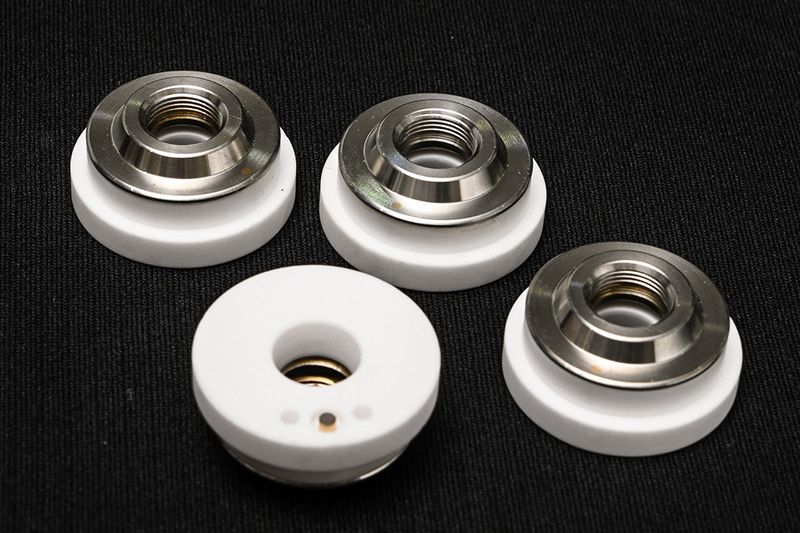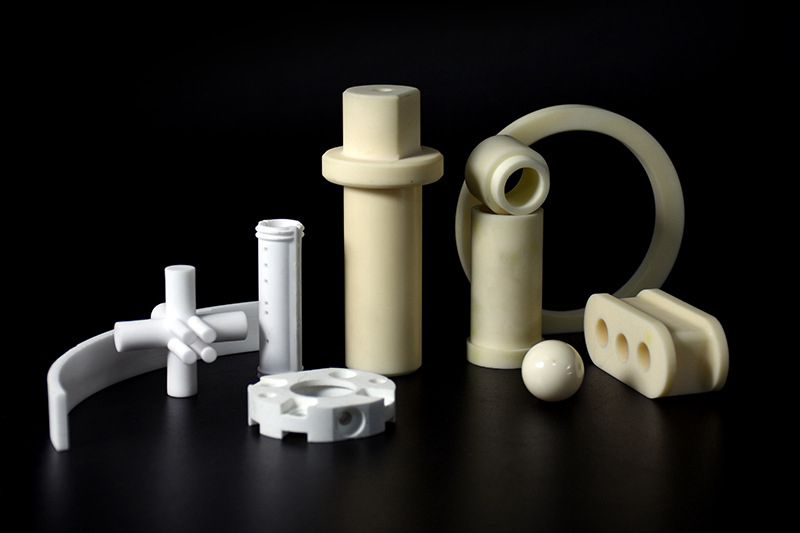Silicon Carbide (SiC)
CIM Silicon Carbide (SiC) Ceramic Injection Molding service
Silicon Carbide Ceramic Injection Molding (CIM-SiC) service combines the remarkable attributes of silicon carbide with the precision and complexity of plastic injection molding. It results in parts with unparalleled thermal stability, outstanding hardness, exceptional wear resistance, and remarkable mechanical strength. Silicon carbide's ability to endure high temperatures and harsh environments makes CIM-SiC parts suitable for applications where other materials may falter.
CIM-SiC finds pivotal roles across a multitude of industries. In aerospace, CIMSiC components contribute to aircraft engines, rocket nozzles, and heat shields, where high-temperature stability and thermal insulation are paramount. The energy industry benefits from CIMSiC's exceptional properties in applications like nuclear fuel rods and components for renewable energy systems. Moreover, CIMSiC shines in industrial applications, including pump components, mechanical seals, and cutting tools, due to its unparalleled wear resistance and robust mechanical properties.
CIM Silicon Carbide (SiC) Typical Properties
Physics and Mechanical Properties
Properties | Fracture Toughness (MPa√m) | Flexural Strength (MPa) | Impact Strength (J/m) | Hardness (HRA) | Young's Modulus (GPa) | Elastic Modulus (GPa) | Thermal Expansion (10^-6/°C) | Compressive Strength (MPa) | Density (g/cm³) |
|---|---|---|---|---|---|---|---|---|---|
CIM Silicon Carbide (SiC) | 3.5 | 400 | 3.5 | 90 | 400 | 420 | 4.0 | 1500 | 3.2 |
Key Features And Applications of CIM-SiC Parts
Hardness
The Hardness of CIM-Silicon Carbide (SiC) parts is outstanding, measured at 90 HRA. This remarkable hardness translates to exceptional resistance against wear and abrasion, making CIM-SiC parts highly durable in challenging environments. Additionally, the Wear Resistance of CIM-SiC parts ensures prolonged service life and minimized material degradation, improving efficiency and reliability.
Applications that demand Hardness and Wear Resistance Properties of Silicon Carbide (SiC) CIM parts include cutting tools used in machining processes, seals and bearings exposed to abrasive materials, and wear-resistant components within industrial machinery. In the automotive sector, CIM-SiC parts find use in brake components and engine parts due to their exceptional wear resistance. Additionally, in the manufacturing industry, CIM-SiC parts excel in cutting tools and die that require durability and precision even during high-speed operations.
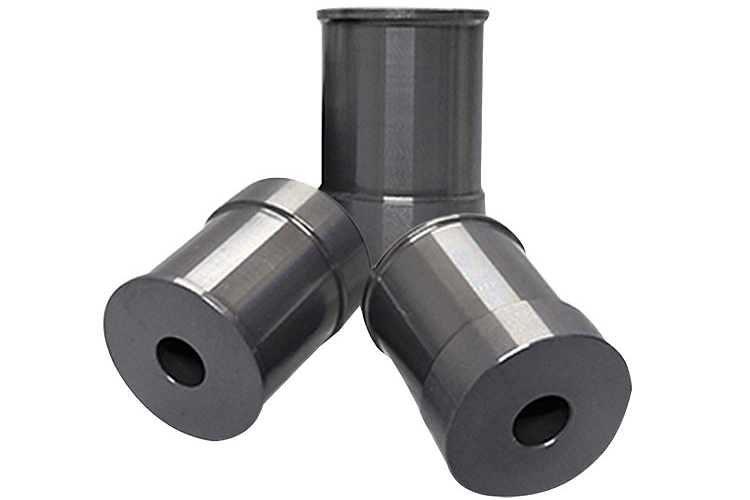
Flexural Strength
The Flexural Strength of CIM-Silicon Carbide (SiC) parts is remarkable, measuring 400 MPa. It signifies the material's ability to withstand bending forces and resist deformation under applied loads. This impressive flexural strength is closely tied to the Structural Integrity of CIM-SiC parts, ensuring they maintain their shape and functionality even under demanding conditions. The robust structural integrity of CIM-SiC parts makes them well-suited for applications where mechanical stability and load-bearing capacity.
Silicon Carbide (SiC) CIM parts find critical applications in industries requiring exceptional Flexural Strength and Structural Integrity Properties. In aerospace and defense, these parts contribute to constructing aircraft and spacecraft components that need to endure mechanical stresses and temperature variations. In industrial settings, CIM-SiC parts excel as structural elements in equipment subjected to heavy loads and vibrations. Moreover, CIM-SiC parts are pivotal in handling delicate substrates and maintaining precise alignment during wafer processing in semiconductor manufacturing.
Thermal Stability
The Thermal Stability of CIM-Silicon Carbide (SiC) parts is a crucial attribute that enables them to maintain their integrity and performance under extreme temperatures. CIM-SiC parts exhibit exceptional resistance to thermal expansion and contraction, ensuring they can withstand rapid temperature changes without compromising their structural integrity. This thermal stability results from SiC's inherent properties, making it well-suited for applications exposed to high temperatures.
Silicon Carbide (SiC) CIM parts find essential applications in industries that demand superior Thermal Stability Properties. In aerospace engineering, CIM-SiC components contribute to propulsion systems and heat shields, where the ability to endure high temperatures during re-entry and flight is essential. Additionally, CIM-SiC parts are utilized in high-temperature processing environments, such as furnaces and kilns, where their thermal stability ensures consistent performance and longevity under extreme heat conditions. The remarkable thermal stability of CIM-SiC parts allows them to thrive in applications where traditional materials may fail due to thermal stress and degradation.
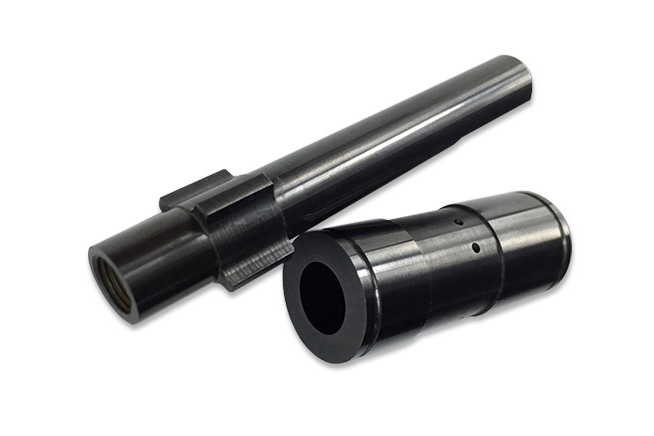
Corrosion Resistance
The Corrosion Resistance of CIM-silicon carbide (SiC) parts is a notable feature that makes them highly suitable for use in corrosive environments. SiC is inherently resistant to many corrosive substances, including acids, alkalis, and harsh chemicals. This corrosion resistance stems from SiC's robust chemical composition, which prevents the material from undergoing chemical reactions that lead to degradation and deterioration. CIM-SiC parts can withstand exposure to aggressive chemicals and corrosive atmospheres, ensuring their longevity and reliability even in challenging industrial and chemical processing environments.
Silicon Carbide (SiC) CIM parts find crucial applications in industries that require exceptional Corrosion Resistance Properties. CIM-SiC components are used in pumps, valves, and sealing systems in the chemical processing industry, where exposure to corrosive chemicals and liquids is every day.
Thermal Conductivity
The Thermal Conductivity of CIM-Silicon Carbide (SiC) parts is a remarkable property that makes them exceptional for applications requiring efficient heat transfer. SiC is known for its high thermal conductivity, which allows it to quickly and effectively conduct heat across its structure. The thermal conductivity of CIM-SiC parts ensures that heat generated or encountered within the material is efficiently dissipated, making them suitable for applications that involve thermal management and heat dissipation.
Silicon Carbide (SiC) CIM parts find critical applications in industries with essential Thermal Conductivity Properties. In the electronics industry, CIM-SiC components are used in heat sinks and thermal management systems to dissipate heat generated by electronic devices. CIM-SiC parts contribute to gas turbine engines and other high-temperature applications in power generation.
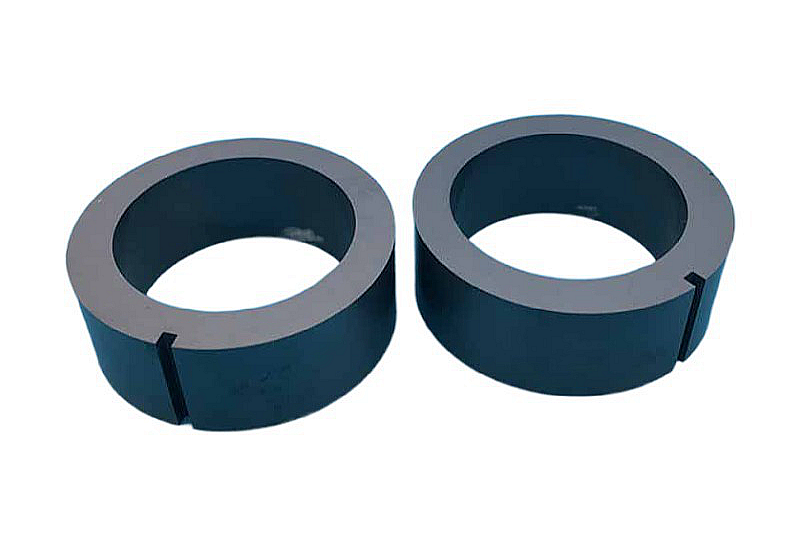
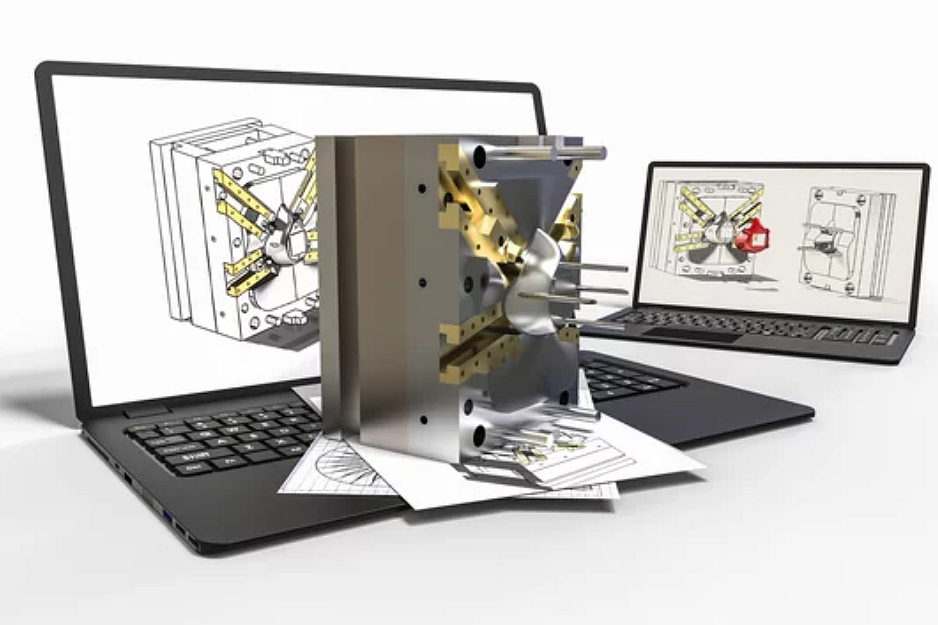
Consultative Design Services
Neway Custom Metal Injection Molding Service provides free Consultative Design Services throughout the process. This includes all processes from your design stage to mass-produced finished products.
1. Material selection Consult
2. Structural design service
3. Mold design service
Contact us now if you are interested.
What We Can Offer?
We offer free material selection and consultative design services from beginning to end. No MOQs, Rapid prototyping, and mass production are our strengths.
